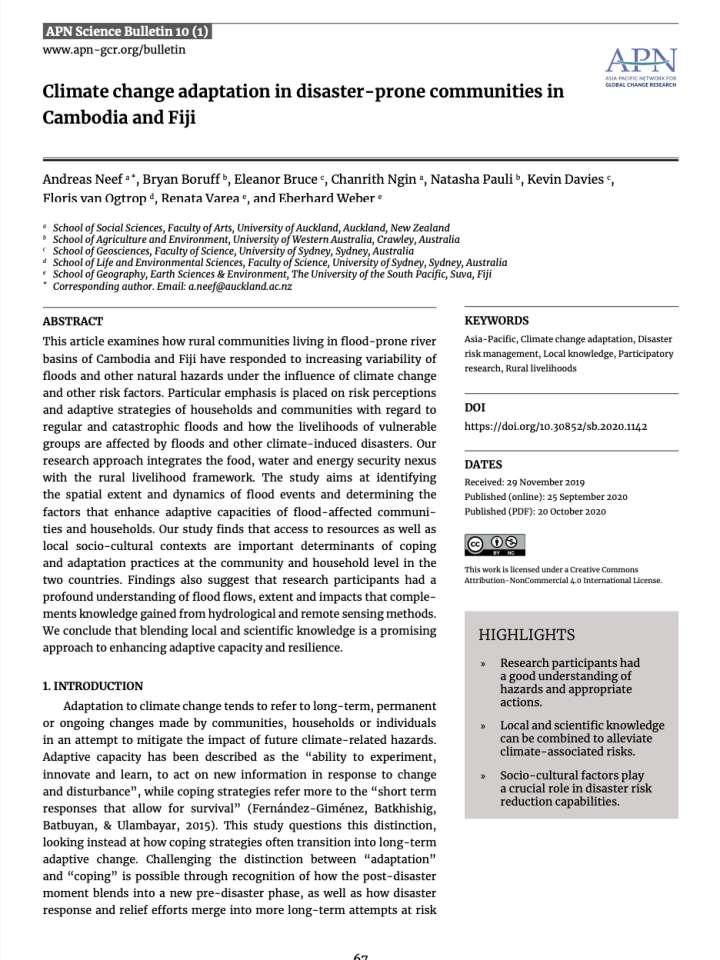Climate change adaptation in disaster-prone communities in Cambodia and Fiji
This article examines how rural communities living in flood-prone river basins of Cambodia and Fiji have responded to increasing variability of floods and other natural hazards under the influence of climate change and other risk factors. Particular emphasis is placed on risk perceptions and adaptive strategies of households and communities with regard to regular and catastrophic floods and how the livelihoods of vulnerable groups are affected by floods and other climate-induced disasters. The research approach integrates the food, water and energy security nexus with the rural livelihood framework. The study aims at identifying the spatial extent and dynamics of flood events and determining the factors that enhance adaptive capacities of flood-affected communities and households.
The study finds that access to resources as well as local socio-cultural contexts are important determinants of coping and adaptation practices at the community and household level in the two countries. Findings also suggest that research participants had a profound understanding of flood flows, extent and impacts that complements knowledge gained from hydrological and remote sensing methods. We conclude that blending local and scientific knowledge is a promising approach to enhancing adaptive capacity and resilience.
Explore further
